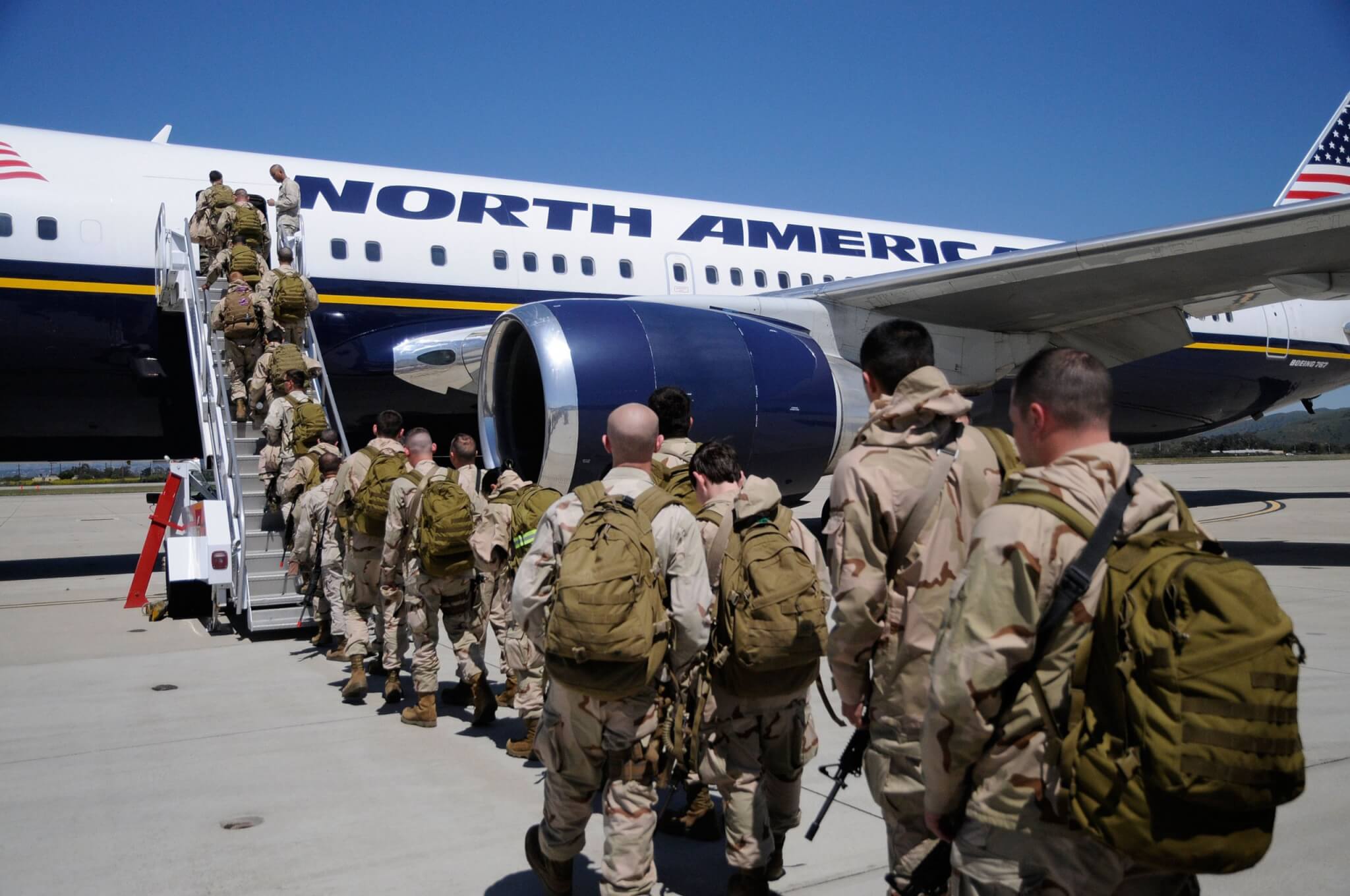The president announced this month that the time has come to end “the forever war.”
President Joe Biden made the remarks from the Treaty Room of the White House, highlighting it was the same location President George W. Bush declared the start of military strikes on terrorist training camps in October 2001. The new withdrawal plan extends an original deadline of May 1 that President Donald Trump negotiated with Taliban leadership last year. The announcement affects roughly 2,500 service members currently deployed to Afghanistan, according to Department of Defense estimates, which is the lowest since operations started in 2001.
Related: Intersections of 9/11
America’s nearly two-decade war in Afghanistan has led to the loss of life for thousands of U.S. men and women. It has also drained trillions of dollars while killing or wounding more than 100,000 Afghan civilians.
Aaron Gardner, a former Army sergeant, served in the Kandahar and Zabul provinces as a light machine gunner in 2004 and 2005. Soldiers he knew personally were killed. He also describes some of the positive moments gained from his deployments.
“I had the opportunity to provide security at a polling site for the first democratic elections where [former Afghan president] Hamid Karzai was elected,” Gardner said. “I remember thinking we are giving these people a chance to know the freedom I love so much in my country, and I hoped they were willing to fight for it and never let it go. I thought we were bringing stability to a country used to plan attacks on our homeland.”
Now a civilian helicopter pilot, Gardner was “not surprised” to hear Biden’s announcement, attributing it to political games between parties.
“It angers me that we have conceded to the Taliban, yet we still have soldiers in country,” he said. “I feel keeping troops there one day longer is pointless. I don’t want a single life lost or altered because of politics.”
That’s a sentiment shared by retired Air Force Master Sgt. Patrick Gaudet, a Force Protection NCO in Kandahar and Bagram from 2007 to 2008. “
I’m numb to that [withdrawal date]; that is how I feel about most of the false promises from politicians,” he said.
Gaudet’s perspective of his Afghanistan service has shifted over time.
“I thought at one point that what we did was having a positive impact. I honestly thought we were laying a foundation for which the [Afghan] government could build upon and take back control of their country,” he said. “Now, I feel as if that time was wasted and lives were lost for absolutely no reason.”
Marine veteran Jared Laskey’s unit lost 14 members during his 2009 stint in Helmand, including a close friend. He said he felt “conflicted” about Biden keeping men and women in harm’s way for five extra months. Part of him thinks the American military should see the job through — but the other believes it’s “time the Afghanistan people take charge and live how they desire.”
Furthermore, Laskey pointed out, the money used to fund the war could instead be allocated for veterans’ causes.
“We originally went to war to retaliate against Al Qaeda and the tragic 9/11 attacks,” Laskey said. “Bin Laden has been long gone. Every war needs an end date and that’s up to the powers-that-be. Biden gave an end date, whether we like it or not. If that’s the lawful order, then it must be executed.”
Overall, Laskey, Gaudet, and Gardner agree on the hope for a peaceful transition, no matter the withdrawal day.
“I hope that our nation supports the troops and contractors for doing a job that wasn’t easy or pretty,” Laskey said. “And that we have hope for a brighter future for ourselves and the people of Afghanistan, if they want it.”
Read commentsSOUND OFF: Do you think it is time for troops to leave Afghanistan or do you think the U.S. needs more time?







































